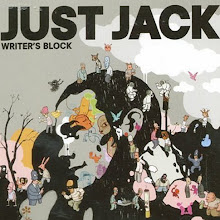**Note - I will only be talking about what is nutritionally relevant unless otherwise stated, for the sake of space and time.
Vitamins and other minerals aside, I'd like to talk about the important and basic macromolecular (macro - big, molecular - pertaining to molecules) structures that make up your diet: proteins, carbohydrates, and lipids (which we will refer to from here on out as fats).
What is/are protein(s)? You may have heard about it from people talking about the ever-popular Atkins Diet. It is a macromolecule made up of amino acids (which we will talk about later) that has several key functions in your body. According to the Centers for Disease Control and Prevention, protein is necessary for: the growth and maintenance of body tissue, to make red blood cells, maintaining proper functioning of antibodies, and for regulation of enzymes and hormones. What I want you to remember is this: that your body absolutely NEEDS protein because it is the building block of which your body is built.
What are carbohydrates? Carbohydrates are your main source of energy and come primarily from plants. Does this mean that a non-plant food can't have carbohydrates? Absolutely not, and you'll soon see why. There are two types of carbohydrates: simple, and complex. There are three kinds of carbohydrates: starches, sugars, and fiber (Galvin, "Carbohydrates"). So does this means that there are a total of 5 kinds of carbohydrates? No. When I say simple and complex I'm referring to the chemical composition of the carbohydrates, where simple refers to a small molecule, and complex refers to a large molecule. When I'm referring to starches, sugars, and fiber I'm talking about the kinds of carbohydrates. Starches and fiber come primarily from plant-based food but, a carbohydrate that can be found elsewhere is sugar. Anyway that will have to do for now until my lengthy post on carbs. Remember, carbs are your main source of energy.
Last, but definitely not least, fats. Fats are your long-term energy stores. They insulate your organs against shock, provide you with essential fatty acids, are necessary for digestion of fat-soluble vitamins (A, D, E, K), and acts as a buffer against diseases (Kaneshiro). The problem is that it is easy to get too much fat but, the bigger issue is that people are not getting the right kinds of fat.
A quick how-to on counting calories:
- 1 gram of protein = 4 calories
- 1 gram of carbohydrates = 4 calories
- 1 gram of fat = 9 calories
Now that your familiar with the basics let's jump right in.
Calories.
So, when you hear calories, what do you think of? If you thought of anything other than energy I would like to re-direct your attention. In physics I learned that a calorie is a measure of energy. More specifically it is the amount of energy necessary to raise the temperature of a gram of water by one degree Celsius. It may further surprise you to learn however, that this is not the unit of measure you see when you look at a box of Cheerios. What you actually see on the nutrition label says calorie but, it is understood (by the FDA) that the precise amount is actually a kilo-calorie (denoted kCal).
This means that when you eat a meal that consists of 190 calories, you are actually ingesting 190 kCal (190,000 calories)! This means that with that amount of energy you could heat up one kilogram of water 190 degrees Celsius. Of course, this is assuming that the body utilizes all of this energy (which it doesn't), and assuming that we could somehow extend the boiling point of water from 100 to 200 degrees Celsius (which we can't without the introduction of other chemicals). But I digress. The point I'm trying to get across is that it is a lot of energy. Whatever your body doesn't utilize gets stored as fat and partially excreted (very small amounts). For me what has worked in the past is viewing my body as a machine. You wouldn't give your car too much oil, or water your plants too much, right? Well, extrapolate this knowledge and apply it to yourself and it becomes much easier to see how your eating habits are affecting you personally.
References
Centers for Disease Control and Prevention. 6 March 2008. 20 November 2008 http://www.cdc.gov/nccdphp/dnpa/nutrition/nutrition_for_everyone/basics/protein.htm.
Galvin, Mary L. Kids Health for Kids. February 2008. 20 November 2008 http://kidshealth.org/kid/stay_healthy/food/carb.html.
—--. Kids Health for Kids. February 2008. 20 November 2008 http://kidshealth.org/kid/stay_healthy/food/protein.html.
---. Kids Health for Kids. February 2008. 20 November 2008
http://kidshealth.org/kid/stay_healthy/food/fat.html
Kaneshiro, Neil K. MedlinePlus. 20 October 2008. 20 November 2008 http://www.nlm.nih.gov/medlineplus/ency/article/002468.htm.
